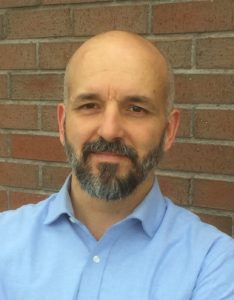
by Anthony Siegrist
When I was a kid, maybe seven or eight years old, I liked to go fishing on the lake near our family’s Ontario home. A friend and I would hike to a rocky point and cast the heavy line and lures we used. Sometimes, my younger brother and I would row a little boat out into the bay and fish. The best part was that it was just us kids—no adults. The only rule was that we had to wear life jackets.
Childhood fishing spot or mercury dumping ground?
A few things stand out to me as I think back on those little fishing expeditions in the 1980s. One is that I expect there was probably more adult supervision than we knew. Our sense of freedom was complete, but I doubt we were really out of sight for very long. The second thing, which I knew nothing of at the time, was that the place we fished was part of a horrifically polluted watershed. We lived just outside of Dryden, Ontario, home to a pulp mill and, at one time, a chemical plant. According to the province, in the 1960s and 70s the pulp and paper operation dumped “around 10 metric tonnes of mercury” into the Wabigoon River. A paper published last year in The Lancet Planetary Health called this “one of the worst environmental disasters in Canadian history.”
The mercury was left over from the creation of chlorine, which was used to bleach the paper the mill produced. One of the downstream communities most affected was the Grassy Narrows First Nation (Asubpeeschoseewagong Netum Anishinabek). Commercial and tourist fishing in the river system was shut down. The subsistence fishing that remained became a hazard. Reed International, the company who owned the plant cut its ties and fled. Revenue for their international shareholders was protected, but not the lives and livelihoods of people downstream. Desperate to keep the mill operating in Dryden, the province agreed to insure purchasers of the facility against future liability.
The story doesn’t end in the 1970s when the use of mercury was discontinued. A 2017 report commissioned by the Grassy Narrows First Nation found that elevated mercury concentrations in fish in the Wabigoon-English River system persisted. The mill grounds may still be leaching toxins. Life expectancy for those exposed to the mercury remains lower than it would be otherwise. One analysis done in 2016 concluded that 90% of the residents in Grassy Narrows suffered from mercury poisoning. Work for justice has been slow. After intense pressure, the federal and provincial governments have announced funding for long-term health care and potential environmental remediation.
The politicization of environmental justice
The lake I fished as a boy was near the source of this pollution, but it was not downstream. Nevertheless, those little fishing expeditions come to mind when I hear people suggest that environmental concerns are limited to liberal or leftist agendas. The politicization of environmental justice is a significant problem. I have talked to several Christian leaders who are hesitant to take up serious creation care initiatives because they believe their constituents will see it as partisan.
I am not a political partisan. While there are some good ‘progressive’ reasons for decrying the poisoning of the Wabigoon River, those are not the sorts of reasons that first come to mind for me. The poisoning of the river did immense, real-world harm to the downstream communities. The link between the company’s actions and that harm is clear. No contentious social analysis is required to see this, no new terminology.
Those of us who value personal responsibility, justice, and holding to account those who harm others should care about this sort of thing. Those of us who value the abilities of families to provide for themselves should care about this sort of thing. Those of us who value tradition and who care about the wellbeing of specific natural places should care about this sort of thing. Regulations that prevent these kinds of pollutants should be in place and should be enforced. The convictions that support this are not just those of “that kind of (liberal) person.” A child should be free to fish a lake without having to consult a map of industrial waste sites. This is basic justice and basic care for future generations.
Sources and Further Reading
- Overview from the Province of Ontario
- Timeline prepared by TVO
- Report prepared for Grassy Narrows First Nation by Rudd, Harris & Sellers
- The Lancet Planetary Health paper on Mercury Exposure in the Grassy Narrows First Nation
Anthony Siegrist is a pastor and theologian who serves at Ottawa Mennonite Church in Ontario. He is currently studying environmental sustainability during a sabbatical. His column, North of the Border, features voices from Canada. Anthony’s most recent book, Speaking of God: An Essential Guide to Christian Thought, is available from Herald Press.
Child photo by Faruk Melik ÇEVİK on Unsplash.
